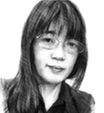An eventful 40-year journey for gaokao
China Daily | Updated: 2017-06-08 07:35
Editor's note: On the 40th anniversary of the resumption of the national college entrance examinations, four academics and a journalist share their views with China Daily's Wu Zheyu:
Reform can help build fair education system

Chen Zhiwen, editor-in-chief of China Education Online
Many of those who took the national college entrance exams, or gaokao, when it was resumed in 1977, have either retired or are preparing to do so.
The decision of Deng Xiaoping, the architect of China's reform and opening-up, to resume gaokao paved the way for cultivation of talents that propelled economic growth. Over the years, the pool of talents has grown in number and depth both, and higher education is no longer considered the preserve of the elite.
But gaokao has been criticized for its overemphasis on grades.
Reforms, however, have continued with Shanghai and Zhejiang province devising new pilot programs. In Shanghai, for example, besides Chinese, English and math, students can choose any three subjects from history, politics, geography, physics, chemistry and biology. And in Zhejiang, students can file as many as 80 applications for majors.
It's good to see the reforms being aimed at creating a scientific and fair gaokao system.
Education meets our diverse needs

Yu Xiulan, professor at the Institute of Education, Nanjing University
I was one of the beneficiaries of gaokao 40 years ago. I entered college in 1978. In those days, gaokao could change (and indeed changed) many students' lives, particularly those from rural areas. Admission to a college meant free tuition, "identity" change, urban hukou (household registration) and later a decent, preferably government, job.
Today a college degree is not enough to fetch a good or well-paying job. But youths need not to be daunted by the declining opportunities. Instead, they should embrace the uncertainties and work for a better future.
Gaokao must be treated for what it is-a means to a better future. And education is the road that leads to that means. But education also caters to people's diversified needs.
There is no conflict between learning professional skills to better serve society and trying to improve individual spirit, as both bode well for society.
























